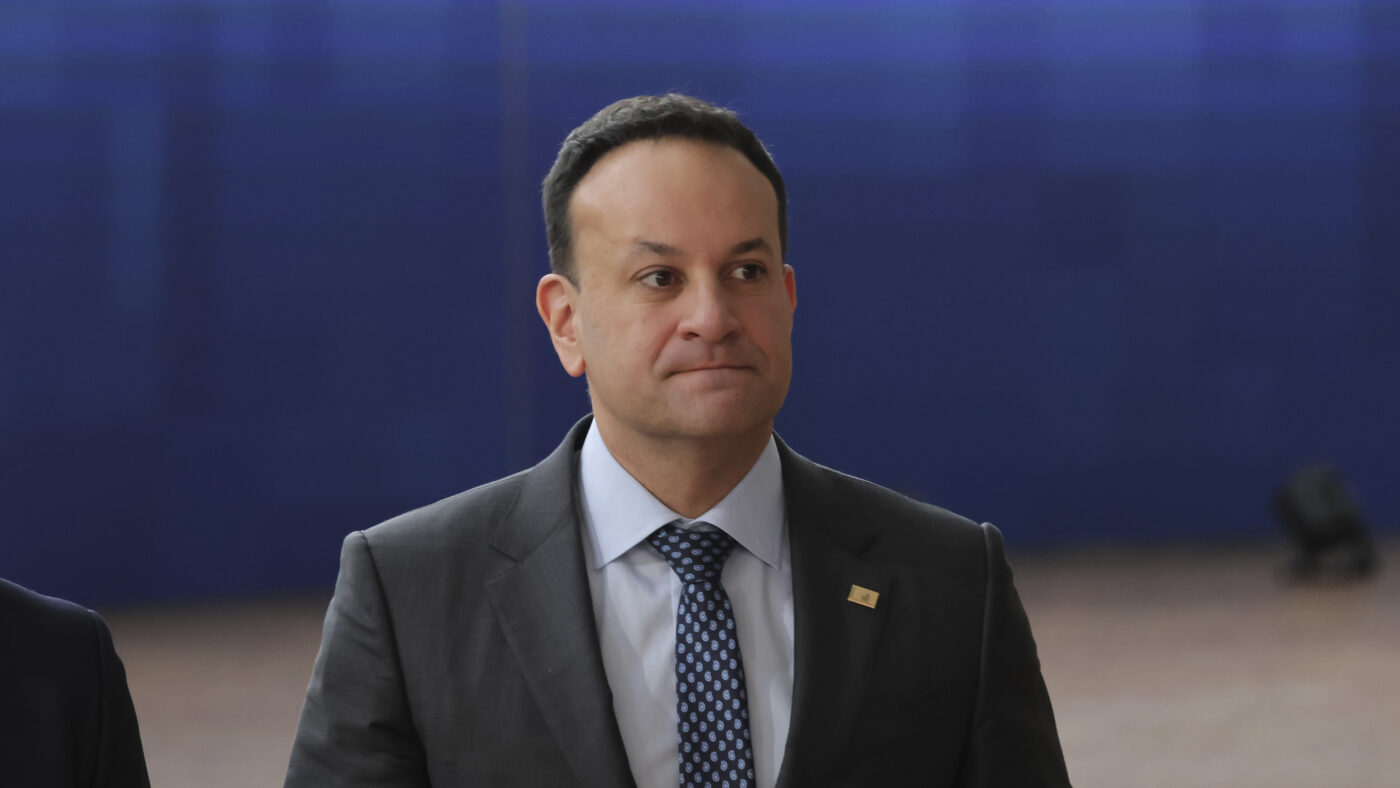The Government at Westminster and the recently restored Stormont executive are already at odds over money. Against that backdrop, the Irish Taoiseach, Leo Varadkar, promised on Tuesday that his administration would spend £685m on ‘cross border projects’ in Northern Ireland.
This apparent show of generosity is self-serving, and the sums are derisory in comparison to the Treasury’s commitments in Ulster, but the Republic increasingly likes to pose as a wealthy benefactor to the rest of the island. These displays are in turn used by northern nationalists, including a freshly appointed set of Sinn Fein ministers, to claim that the province’s prosperity depends upon its involvement in an ‘all-Ireland economy’ rather than its far more significant trade links to mainland Britain.
The bulk of this cross-border money, if it materialises, is due to be spent on a long-delayed upgrade to a major north-south road. The A5, which runs from Londonderry to the border at Aughnacloy, is a notorious accident blackspot. It is also, not coincidentally, an important link between Donegal, the Republic’s most north-westerly county, and its capital in Dublin.
Admittedly, Varadkar also pledged £40m to help redevelop the Casement Park GAA stadium in west Belfast. This abandoned sportsground is one of the proposed venues for the European Championships, due to be staged in the UK and Ireland in 2028. But the decision to rebuild a derelict Gaelic games field at a likely cost of at least £200m, rather than update existing football facilities, is a divisive and expensive one that has angered many unionists and Northern Ireland football fans.
These investments, though, are a compelling propaganda tool for Dublin.
The amounts they spend in Northern Ireland are small, but they encourage the perception that the Republic is booming and has money to spare. A growing body of research, including a recent paper by the tax consultant, Bob Lyddon, points out that the Irish economic model is based at least as much on giving the impression that it is thriving (and facilitating tax avoidance) as real economic activity.
In addition, the current southern Government, made up of a coalition between the historic rivals Fine Gael and Fianna Fail, is fending off Sinn Fein, which mixes left-wing populism and old-fashioned anti-British nationalism. By intervening in Northern Ireland, it can claim to be promoting the all-Ireland future that all the main southern parties are officially committed to realising.
The Republic’s economic achievements are exaggerated, but, in the aftermath of Brexit, it is desperate to portray itself as a prosperous European counterpoint to Britain, which it depicts as struggling and inward-looking. Very often the media in Northern Ireland are happy to promote this idea. The BBC set up a live stream on its website, for example, to cover Tuesday’s press conference in Dublin, as if it was following an actual budget statement.
The Government at Westminster announced an extra £3.3bn for Northern Ireland recently, including a revamped funding model that offers 24% more public money per capita than in England, but it is still portrayed as mean and uncaring. The difference, of course, is that it is ultimately responsible for the province’s finances, with its large and wasteful public sector. It doesn’t have the luxury of dropping one-off love bombs, that make good newspaper copy but solve none of Ulster’s long-term problems.
Unfortunately, Northern Ireland’s unionist parties, which should be highlighting the economic benefits of belonging to the United Kingdom, often join their nationalist rivals in claiming unfair treatment by London.
Stormont’s current dispute with the Government involves a relatively small sum of £113m that the Treasury asked it to raise in return for dropping a £559m debt. The Northern Ireland Secretary, Chris Heaton-Harris, claims that the parties committed to raise this money, as part of the deal to restore power-sharing.
The quickest way to achieve this would be to increase the regional rate, but both Sinn Fein and the DUP immediately ruled that option out. They argue that the Government tacitly acknowledged that Northern Ireland was underfunded, by agreeing a new funding arrangement, so they should not be required to pay their existing debts.
In response to Leo Varadkar’s cross-border cash, the DUP’s leader Sir Jeffrey Donaldson effectively scolded the government for abdicating its responsibilities. ‘It is not the job or the responsibility (of the Republic) to provide financial support for the provision of public services and general Northern Ireland infrastructure,’ he said, ‘That is a matter for the UK government and must be done in accordance with our needs base as set out in evidence provided to the UK government.’
Ministers at Westminster have certainly been ineffective, in the past, at reminding Dublin of the limits to its role in Northern Ireland. They have, for example, allowed the Republic to become involved in negotiations about the province’s internal political arrangements in direct contravention of the Belfast (Good Friday) Agreement.
When Ireland challenged the UK’s Northern Ireland legacy bill at the European Court of Human Rights recently, the government’s robust response was a welcome exception to its usually docile approach to Dublin interference.
The truth remains that Northern Ireland’s economy, as well as its immediate prosperity, depends entirely upon its place in the UK. That’s why the Irish Sea trade border was so destabilising for politics in the province and it’s why it remains a threat to its businesses.
That’s the case that unionists in Ulster should be making. They only help Irish separatism when they repeatedly attack Westminster for providing too little money, rather than tackling a culture of entitlement in Northern Ireland that insists more is never enough.
Click here to subscribe to our daily briefing – the best pieces from CapX and across the web.
CapX depends on the generosity of its readers. If you value what we do, please consider making a donation.


